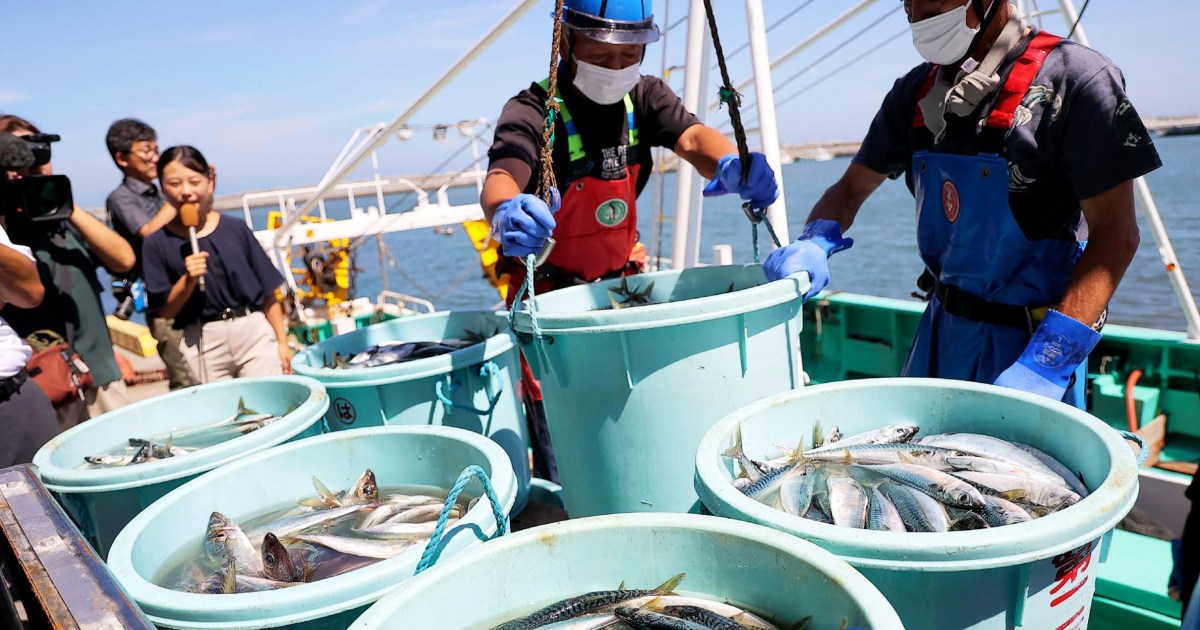The United States has started bulk buying Japanese seafood to supply its military there in response to China’s ban on such products imposed after Tokyo released treated water from its crippled Fukushima nuclear plant into the sea.
Unveiling the initiative in a Reuters interview on Monday, U.S. ambassador to Japan Rahm Emanuel said Washington should also look more broadly into how it could help offset China’s ban that he said was part of its “economic wars.”
China, which had been the biggest buyer of Japanese seafood, says its ban is due to food safety fears.
The U.N.’s nuclear watchdog vouched for the safety of the water release that began in August from the plant wrecked by a 2011 tsunami. G7 trade ministers on Sunday called for the immediate repeal of bans on Japanese food.



Dilution is always the solution baby. Something so simple, yet still so impossible to explain to people who believe in chem trails.
Tbf, that’s kinda what people thought about leaded gasoline, or greenhouse gas emissions.
In this case, yes, everyone seems perfectly fine, but dilution isn’t the solution to everything when the body you’re diluting into is finite.
Dilution would technically still be a solution for both of those problems, the issue is just user input error. If you don’t have the reagents to dilute a proper solution then you have too many solutes.
No…
Well yeah, that’s because the science of homeopathy tells us that diluting things makes them stronger! /s
Not necessarily. There are concerns about the wastewater still contains radionuclides which are heavier than tritium and tend to bioaccumulate. As such, it’s possible even if they are not highly concentrated in the release water, they could reach unsafe levels in marine life.
Here’s the thing, Uranium is already present in seawater at concentrations far above what you would get if you dumped the entirety of Fukushima’s corium straight into the ocean.
See, there’s a common form of uranium oxide that’s water-soluble. A large part of the world’s free uranium is already in the ocean in solution.
What’s your point? Uranium is not the only fissile radionuclide that can make its way into the contaminated wastewater. Also nuclear fuel contains a much higher concentration of fissile Uranium isotopes than what is found in nature. Lastly, the radionuclides in the wastewater are not going to be evenly mixed across all of the worlds oceans so that’s not exactly a useful thought experiment.
Let me put it this way, you could dump ten thousand Fukushimas straight into the ocean and given time to diffuse a bit, not notice a difference in oceanic uranium content.
The Oceans contain 1000 times more uranium than the known terrestrial deposits. This naturally includes the fissile isotopes.
But the real point is that it’s actually fairly easy to filter that shit out via reverse osmosis. Thus, the only thing that the Fukushima water contains is tritium, which is impossible to filter out of water.
This entire disaster is a great lesson in why when your engineers say “This site isn’t suitable for a reactor” or “this seawall is insufficient to prevent a tsunami from overwhelming the reactor” you really should listen to them.
The real solution to nuclear disasters is not having them to begin with.